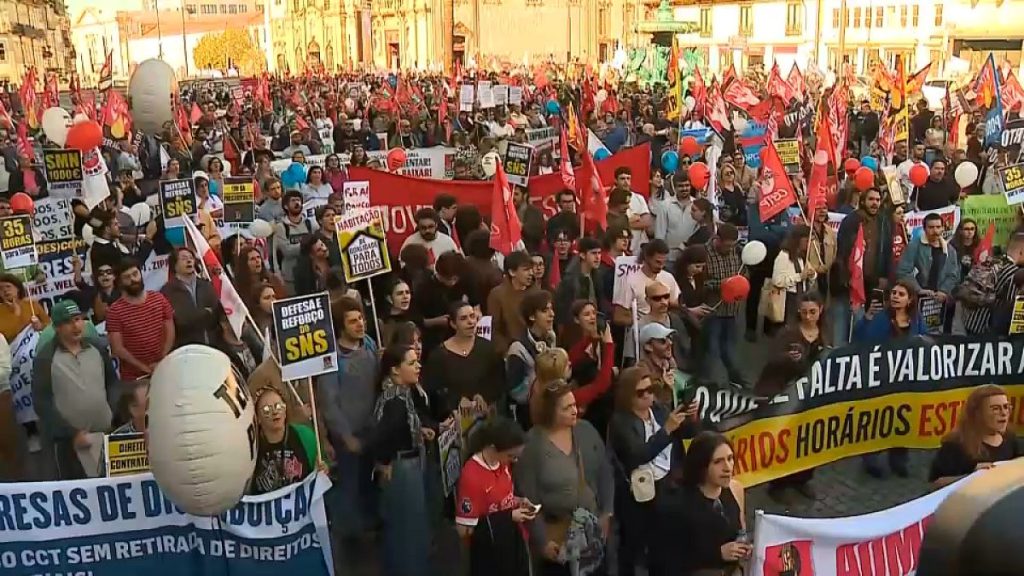Thousands of people in Portugal have taken to the streets in protests demanding higher wages, pensions, and improvements to social services. The General Confederation of the Portuguese Workers (CGTP) organized the marches in Porto and Lisbon, calling for better conditions in both the public and private sectors. The protests are part of a month-long campaign under the slogan ‘Increase Salaries and Pensions, Solve the Country’s Problems’, to address the daily struggles faced by workers. The CGTP criticized a recent deal between the government, the General Union of Workers (UGT), and four employer confederations to increase the minimum wage to €870 by 2025, leaving out CGTP members from the negotiations.
Portugal, one of Western Europe’s poorest countries, has official data showing that more than half of its workers earn less than €1,000 a month. The current minimum wage in Portugal is €820 a month, with a government proposal to increase this amount by €50 a year until 2028, reaching €1,020 in that year. However, despite the planned increase, Portugal still lags behind many other European Union countries in terms of minimum wage. Comparing to other EU member states, Portugal ranks twelfth in terms of minimum wage, far below countries like Luxembourg, Ireland, and the Netherlands, where minimum wages are much higher.
Participants in the protests in Porto and Lisbon expressed frustration at the lack of opportunities for better-paying jobs despite education levels. One protester with a university degree lamented that his education did not guarantee him a good job or salary, highlighting the broader issue of income inequality in the country. The distribution of wealth was a key concern for protesters, with calls for a larger share of resources to go to the workers who contribute daily to the economy. The demonstrations aimed to draw attention to the struggles faced by many workers in Portugal, including unaffordable housing and limited access to healthcare, which have been exacerbated by political decisions.
The CGTP’s Secretary General, Tiago Oliveira, emphasized that the day-to-day difficulties experienced by workers are a result of political choices. The protests aimed to address these concerns and push for meaningful changes that would benefit all workers in the country, regardless of their sector. The movement for increased salaries and pensions reflects a broader call for social justice and economic fairness in Portugal. Protesters called for a more equitable distribution of wealth within the country, highlighting the disconnect between economic growth and the living standards of many workers.
Despite the government’s proposal to gradually increase the minimum wage, Portugal continues to struggle with widespread poverty and income inequality. The protests in Porto and Lisbon represent a collective effort to push for better wages, pensions, and social services for all workers in the country. The demonstrations have brought attention to the challenges faced by many Portuguese workers, including the need for affordable housing and accessible healthcare. The calls for change reflect a growing demand for economic justice and a fairer distribution of resources in Portugal. By uniting workers from different sectors, the protests aim to make a significant impact on policies that affect the daily lives of working people in the country.


